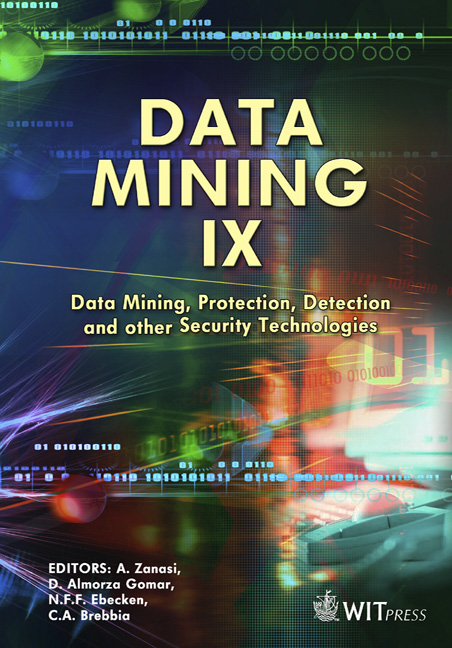Mining Spatial And Temporal Data To Classify Water Quality: A Case Study
Price
Free (open access)
Volume
40
Pages
9
Page Range
83 - 91
Published
2008
Size
962 kb
Paper DOI
10.2495/DATA080091
Copyright
WIT Press
Author(s)
A. J. Seixas, S. L. P. L. Beatriz & F. F. E. Nelson
Abstract
Water is part of the heritage of the planet. Every continent, nation, region, city, and citizens are fully responsible for it. The environment and the future of our planet depend on the preservation of water and its cycles. Those should remain intact and work normally in order to ensure continuity of life on Earth. This balance depends, in particular, on the preservation of the seas and oceans where the cycles begin. The water management requires a balance between the necessity of environmental protection and the need for economic order, health and social affairs. In Brazil, around 80% of the sewage is discharged into water bodies without treatment, in which 85% are domestic sewage and 15% industry sewerage. Therefore, the conditions of sanitation are poor in most Brazilian cities. This scenario is not very different in the City of Rio de Janeiro. In the waters of the Rodrigo de Freitas Lagoon, the problem of sewage release has mostly been solved, but there is still much to do. A better control over the quality of its waters is necessary, in contrast to the lack of public resources needed for this. This work proposes to investigate the correlations of the spatial and temporal data that compose the set of pollutants of the Rodrigo de Freitas Lagoon. The main goal is to achieve a methodology for the classification of water quality, which may be used in other water bodies. For that, in the investigative process, several techniques of data mining will be used to group and classify the available data. The work includes several steps of knowledge discovery that will be implemented to reach the goals. Tasks such as cleaning, integration and data selection, as well as post-processing and visualization algorithms must be executed. Some preliminary results, already available, will be shown in this article. Keywords: data mining, environment, classification, clustering, water quality, pollution.
Keywords
data mining, environment, classification, clustering, water quality, pollution.





